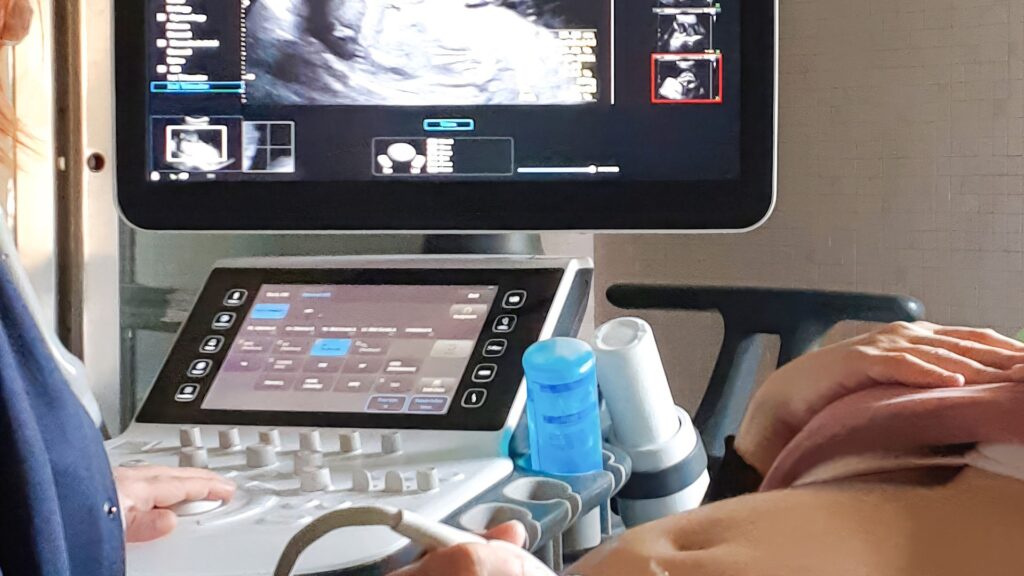Private ultrasound scans have grown in popularity over the last few years, and expectant parents often turn to private ultrasound clinics for reassurance, gender reveals, or keepsake images. BBC News reports that a growing concern raised by the Society of Radiographers (SoR) suggests that some of these clinics may be putting lives at risk.
What’s the issue?
The SoR has reported serious cases of misdiagnosis by individuals performing scans without proper qualifications. In some instances:
- Women were wrongly told their baby had died or had severe abnormalities.
- Some were advised to end their pregnancy—only to later discover their baby was perfectly healthy.
- Major conditions like spina bifida, polycystic kidneys, and ectopic pregnancies were missed or misdiagnosed.
In one heartbreaking case, a woman was referred for an induced miscarriage after a private scan showed no heartbeat. At the hospital, a follow-up scan revealed a healthy nine-week pregnancy.
Why is this happening?
Unlike titles such as “radiographer” or “dietician,” the term “sonographer” is not legally protected in the UK. This means anyone with access to an ultrasound machine can call themselves a sonographer, regardless of training or qualifications.
Pop-up clinics in shopping centres and high streets are especially concerning. These often focus on souvenir or gender scans and may lack proper clinical oversight.
What can you do to stay safe?
If you’re considering a private scan, here are some essential safety checks:
1. Ask about qualifications: Has the sonographer completed a course accredited by the Consortium for the Accreditation of Sonographic Education (CASE)?
2. Check registration: Is the clinic registered with the Care Quality Commission (CQC)? When was it last inspected?
3. Look for reviews and recommendations: Ask your GP, midwife, or trusted friends.
4. Verify experience: How long has the clinic been operating? Do they have clear procedures for referring abnormal findings?
You can also search the Register of Clinical Technologists to see if a sonographer meets certain standards—though registration is currently voluntary.
What needs to change?
The SoR is calling for “sonographer” to become a protected job title, meaning only those with proper qualifications and registration could use it. The Professional Standards Authority agrees that the risks are high enough to consider stronger regulation.
Bottom line: While many private clinics offer excellent care, others may not. If you’re pregnant and considering a private scan, take the time to ask questions, check credentials, and make sure your health and your baby’s are in safe hands.
What if you’ve been given incorrect or harmful advice?
If you’ve received a misdiagnosis or unsafe advice from a private scan clinic, you may be entitled to pursue a clinical negligence claim. A clinical negligence solicitor can help determine whether:
- The clinic owed you a duty of care;
- That duty was breached through poor practice or misdiagnosis;
- You suffered avoidable harm as a result.
Compensation may cover emotional distress, physical injury, financial loss, or even wrongful termination of pregnancy.
How can we help?
Adelle Gamble is a Paralegal in our Medical Negligence team, which has been ranked in tier one by the independently researched publication, The Legal 500.
If you have any questions in relation to the subjects discussed in this article, then please get in touch with Adelle or another member of the team in Derby, Leicester, or Nottingham on 0800 024 1976 or via our online form.
Contact usIf this article relates to a specific case/cases, please note that the facts of this case/cases are correct at the time of writing.

